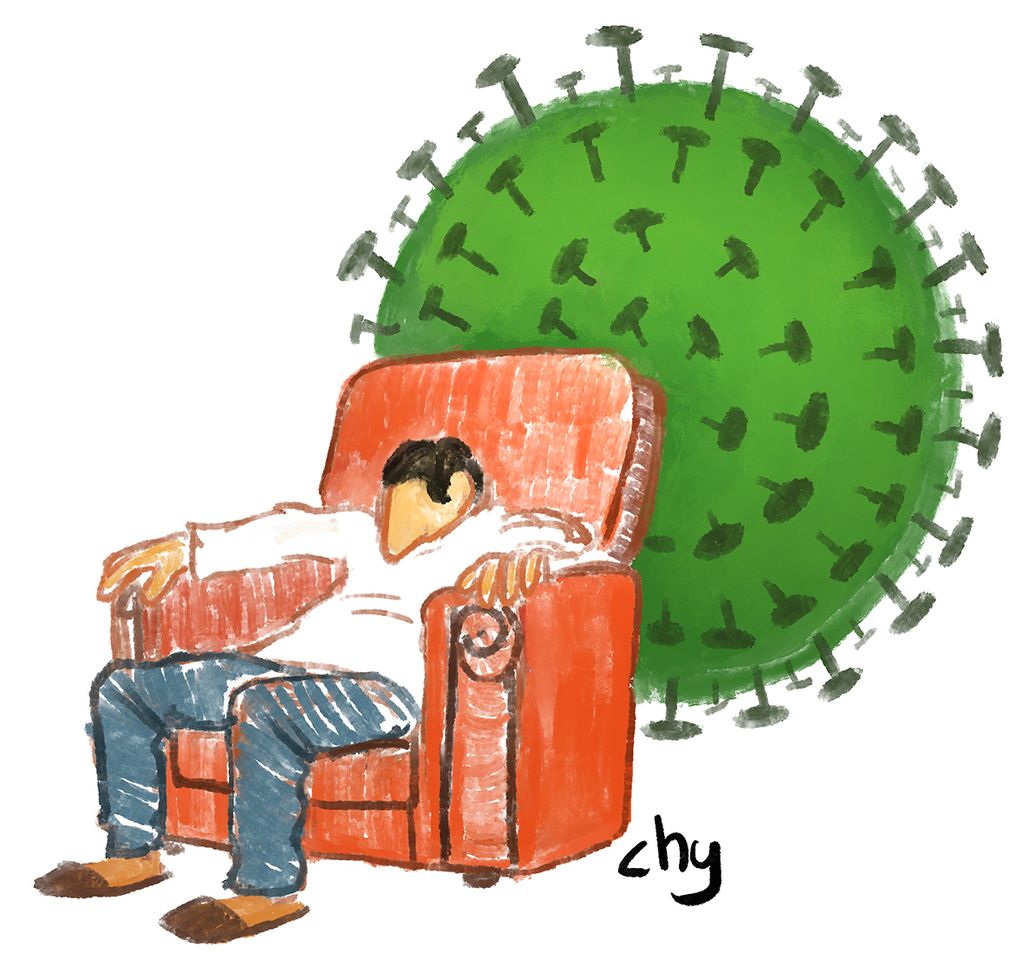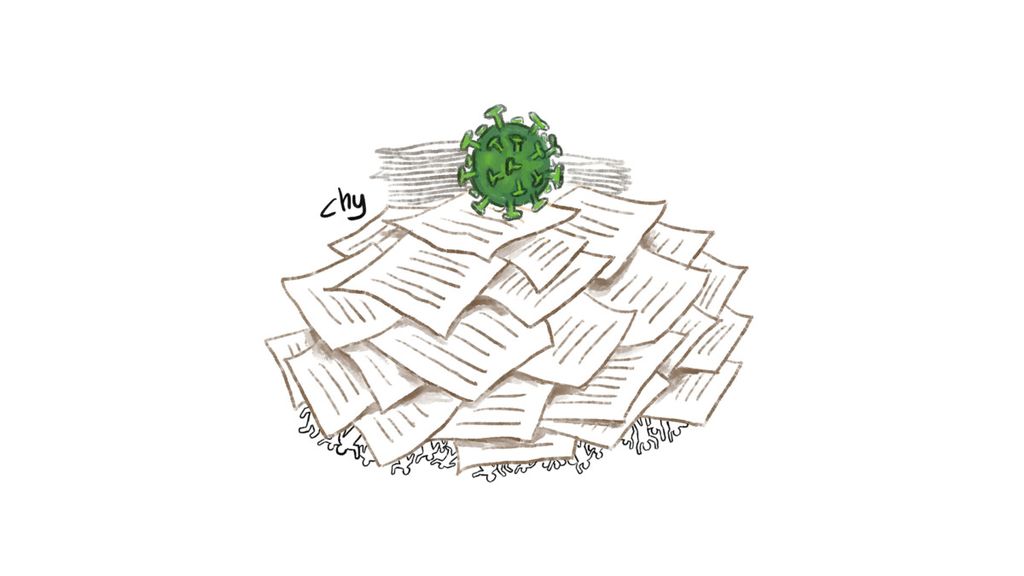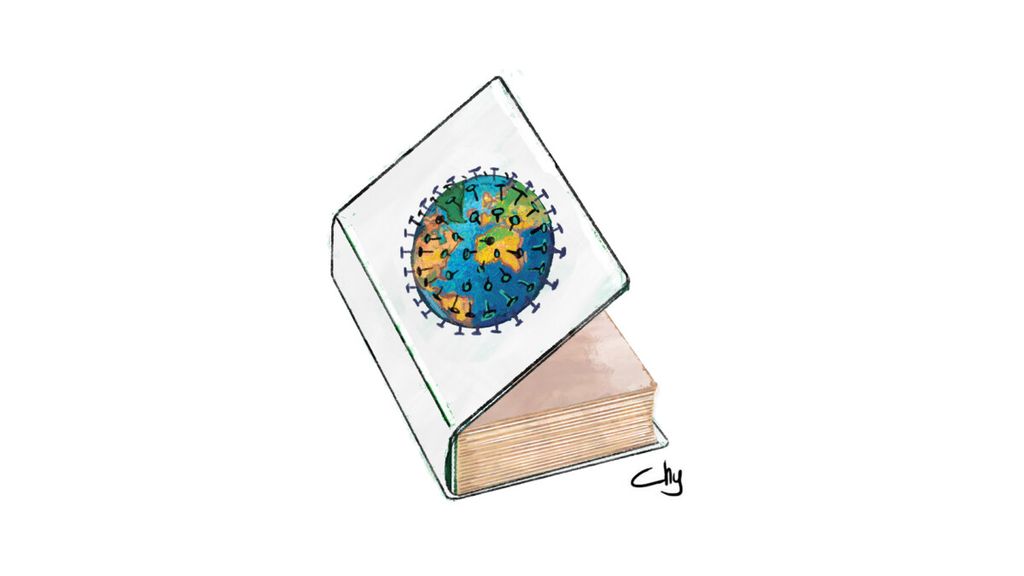Third Wave of Pandemic, Threat or Illusion?
Indonesia is still in the midst of a pandemic storm. It is not the time to unbuckle your seat belt and relax. So, keep your seat belt on and always be aware of turbulence.

Heryunanto
Indonesia has successfully passed the second wave of the Covid-19 pandemic. At least for now. The number of new cases and deaths has dropped dramatically.
As of 19 September, new cases were around 13 per million of the population; much lower than at the peak of the second wave, which reached 181 per million. The mortality rate has also decreased from 6.5 to 0.8 in every million.
Although this mortality rate is still higher than that before the second wave, the improvement is encouraging. The positivity rate has also reached 3.7 percent; already below the “under control” standard set by the World Health Organization (WHO), which is 5 percent. With this data, it is only natural that the government has claimed to be successful.
After such improvement, will Indonesia get out of the pandemic? Or will we see another wave?
Determinants of the pandemic
Until now, not a single country in the world has managed to free itself from the pandemic. A number of countries had been reported as successful in tackling the pandemic, only to see a hike in cases again. India and Israel are two examples.
The Prime Minister of India had repeatedly claimed in various international forums that his country had defeated Covid-12. However, a few months later, a second wave hit and nearly collapsed the country\'s health services. Israel is the same. After successfully increasing vaccination coverage and reducing the number of cases and deaths, the country tried to return to normal life. Unfortunately, the number of cases and deaths has soared again.
Also read:
> Superspreading Events and Vaccination Coverage
> Looking into the Nusantara Vaccine
The progress of the pandemic resembles a yo-yo phenomenon -- ups and down. The main determinants include four factors, namely health protocols, 3T (test, trace and treat), movement restrictions and vaccines, as well as one confounding factor, namely virus mutation. The four main factors determine the equilibrium of the pandemic. When health protocols, 3T, movement restrictions and vaccine coverage are strengthened, cases and deaths decrease. When weakened, the opposite happens.
Virus mutation itself is an equilibrium confounder. It is a game changer, able to change the existing equilibrium. Virus mutations can produce variants that transmit more quickly, cause more severe complaints and cause vaccines to be less effective. Mutations are continuous and this is the natural cycle of a virus.

Therefore, some experts think that the pandemic will never completely disappear because of the virus mutations. And the fact is, this is correct.
The Covid-19 virus continues to mutate and is currently creating many new variants. As the fight against the Delta variant continues, the Mu variant is now also a source of concern. And so on. While the pandemic equilibrium can be set by four main factors, viral mutations can break this equilibrium at any time.
This is because the changes in these factors have not yet reached a stable condition and are subject to change. In India, the number of cases and deaths was once very low. This condition lasted around half a year. However, when health protocols and movement restrictions were violated, especially during religious festivals, cases and deaths skyrocketed again. This was exacerbated by the spread of the Delta variant.
In Israel, the number of cases and deaths had been very low for several months, but when the country tried to return to normal life, including allowing social activities without strict health protocols, cases and deaths soared.
Third wave
The cases in India, Israel and other countries that were once considered successful in handling the pandemic should serve as a warning for Indonesia, that the current achievements are still not stable. The situation is still very vulnerable to change. At any time, cases and deaths can skyrocket again and usher Indonesia into the third wave of the pandemic.
The possibility of a third wave is not absurd. There are four conditions that make Indonesia vulnerable to this.
Also read:
> Preventing the Resurgence of Covid-19 Cases
First, Indonesia\'s Covid-19 vaccination coverage is still low. As of 15 September, the number of people who received the first jab of the vaccination was around 76 million, 28 percent of the population, and 43 million people had received the second dose, 16 percent of the population. In fact, vaccination coverage determines stability of equilibrium in the pandemic.
Countries with low vaccination rates have a fragile equilibrium. The number of cases, hospitalizations and deaths can increased easily and sharply. This is especially the case if the health protocols, mobility restrictions and 3T are not strictly enforced. If Israel, which has a very good vaccination profile, can experience a resurgence of cases, why is this not possible in Indonesia?

Second is the massive infodemic of misinformation and number of "covidiots" (a term referring to those who ignore warnings related to public health or safety and contribute to the spread of Covid-19). The spread of these two phenomena is global; not only in Indonesia.
The infodemic and covidiots have really undermined and hindered the mitigation of the pandemic. Both erode aspects of cognition. This causes a broad rejection of the Covid-19 mitigation, including a rejection of the vaccinations. When more and more people deviate, it can create a “massive infodemic” and “herd covidiotity”, and as the Covid-19 reproduction rate increases, and with low vaccination coverage, there is an increase in transmission. People get infected and die in a shorter period of time.
This is the third wave. Alarmingly, the infodemic and covidiots are rampant in Indonesia. One study reported that Indonesia is one of six countries with the largest infodemic and covidiot levels.
Third, Indonesia is a hub of transportation and social connectivity in Asia, especially in Southeast Asia. Given this position, Indonesia has the potential to experience a rapid spread of new variants. As an example, the previous Delta variant did not take long to spread in Indonesia.
Also read:
> Bringing Down the Death Rate
> Intensifying Covid-19 Genomic Surveillance
Delta was first identified in India last April. In just a period of three months, this variant had entered and spread quickly in Indonesia. The same thing can happen with other variants.
Fourth, vaccine euphoria. Many people assume that after getting the vaccine they can return to normal life. They think they can get together, without needing to wear masks as they would not get infected with Covid-19 again.
Moreover, lately the media has reported a lot of news stories about the improving conditions of the pandemic in Indonesia. This news evokes a psychological response as if the pandemic has ended and society can return to normal.
Some regions have already begun relaxing the health protocols. The same is happening in number of industries too. Ancol Dreamland Park is beginning to reopen. Recently, a large cafe in Jakarta had to be sealed because it had fully opened its business activities ignoring the health protocols. Vaccine euphoria is spreading, and this can destroy the good results that exist today.

Pandemic turbulence
To return to the idea of progress in the pandemic as a yo-yo, the number of cases and deaths will continue to move up and down depending on the equilibrium of the main and confounding factors. It will not be stable until these factors are under control, as has been experienced by countries around the world. The point is, do not be too quickly complacent and happy with current achievements. Another wave of the pandemic is a real threat and Indonesia is very vulnerable to it.
Instead of being euphoric about the current results, Indonesia needs to anticipate the emergence of a third wave. Preparation must be done early and well prepared, not ujug-ujug (desperate) when the third wave hits. The availability of hospitals and health workers, as well as sufficient medicine and medical equipment must be prepared from now.
Vaccination coverage must continue to be increased. There is no need to be swayed by the view that new variants will be immune to the vaccine. Later there will be a way to deal with it; perhaps with a booster or a modified vaccine. Now what is needed is to achieve herd immunity as soon as possible, by vaccinating at least 70 percent of the population.
Indonesia is still in the midst of a pandemic storm. It is not the time to unbuckle your seat belt and relax.
The Health Ministry, the Communications and Information Ministry, as well as related agencies must work hard to reduce the infodemic and number of covidiots. All methods must be used. If necessary, an anti-infodemic team can be established down to the district level. A persuasive approach must be put forward. Regarding the covidiots, the approach must be more serious. If necessary we need to impose fines or penalties.
The public should be made aware that the current situation is still not stable. The number of cases could go up and down in a matter of weeks. The government and the public must be aware that this is not the time to relax health protocols. The 3M program (wearing masks, washing hands and keeping distance/avoiding crowds), 3T and vaccination drive must continue. There must be no regression.
The entry route to the Indonesian territory must receive special attention. All areas without exception. The focus is not only at airports, but also seaports and roads. Entry requirements and screening must be tightened. This is because it is the main shield to prevent the entry of new, dangerous variants. This is important, because once this variant enters, its spread will be difficult to contain.

Iqbal Mochtar
Indonesia is still in the midst of a pandemic storm. It is not the time to unbuckle your seat belt and relax. Up ahead there are still zones of heavy cloud that have the potential to cause turbulence. So, keep your seat belt on and always be aware of turbulence.
Iqbal Mochtar, Physician and Doctor in Medicine and Health; Chairman of the Middle East Indonesian Physicians Association.
This article was translated by Kurniawan Siswoko.